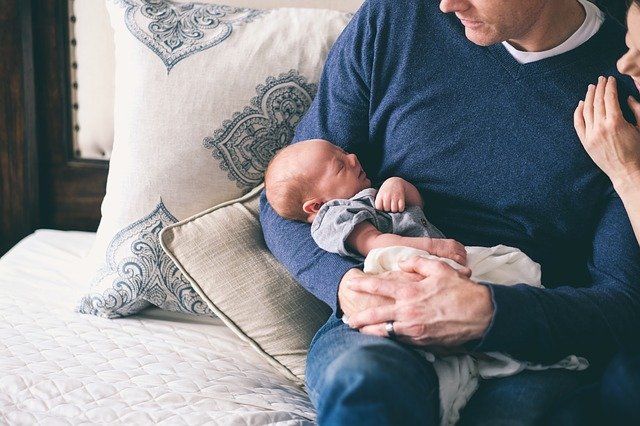Fathers who take paternity leave are less prone to postpartum depression, according to a new French study. This phenomenon is likely to affect one in ten fathers in the year following the birth of the child. In contrast, paternity leave has no impact on women's risk of postpartum depression.
Postpartum depression is a disease that does not only affect mothers. According to Inserm, the French National Institute of Health and Medical Research, "more than 10% of fathers are likely to develop it during the year following the birth of their child", compared to 17% of mothers.
However, according to a study conducted jointly by Inserm and Sorbonne University at the Pierre-Louis Institute of Epidemiology and Public Health, taking two weeks of paternity leave could have a beneficial effect on the mental health of fathers. Their work is published in the journal The Lancet Public Health.
To carry out their research, the specialists followed volunteers from the ELFE cohort, a group of research bodies which is responsible for the follow-up on 18,000 children born in 2011 in France as well as their parents. After the birth, couples revealed their intention to take paternity leave.
Related News
64% of fathers said they had taken paternity leave while 17% said they intended to take paternity leave. On the other hand, 19% did not intend to take it. Two months later, the parents answered a questionnaire to determine if they had depression.
According to the analysis of the results, "4.5% of fathers who took paternity leave and 4.8% of those who intended to use it had postpartum depression compared to 5.7% of those who did not use it," explains Inserm in a press release.
But a two-week paternity leave would not be enough to protect mothers from postpartum depression.
Indeed, among mothers whose partners used their two weeks of paternity leave, 16% of them had postpartum depression. Among couples whose father plans to take his leave, they were 15.1% and 15.3% among those whose partner had not taken paternity leave.
The difference in results between fathers who take paternity leave and those who don't take it might seem insignificant. The main reasons for both parents to take leave after a child is born are to achieve a better work-life balance and a close contact with the child.
As previously reported, an EU directive on work-life balance for parents entered into force on 1 August 2019 and aims at encouraging parents to share parental leave.
The directive sets minimum requirements for Member States. It gives each parent at least 4 months of parental leave, out of which two months are non-transferable between them. The two non-transferable months of parental leave will be compensated at a level set by the Member States.

